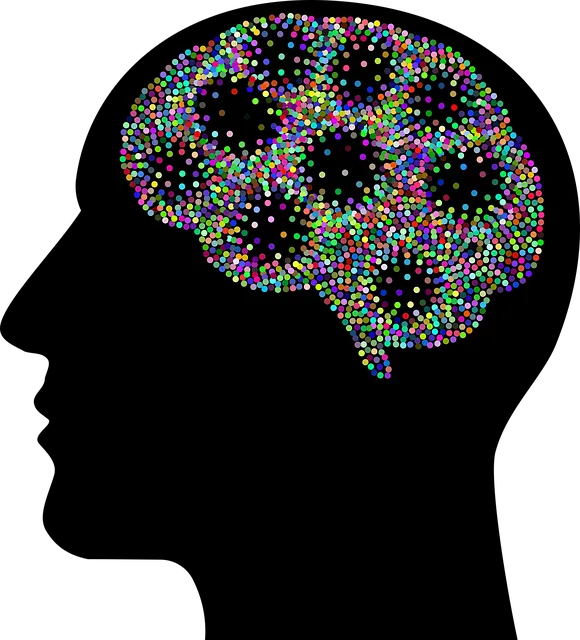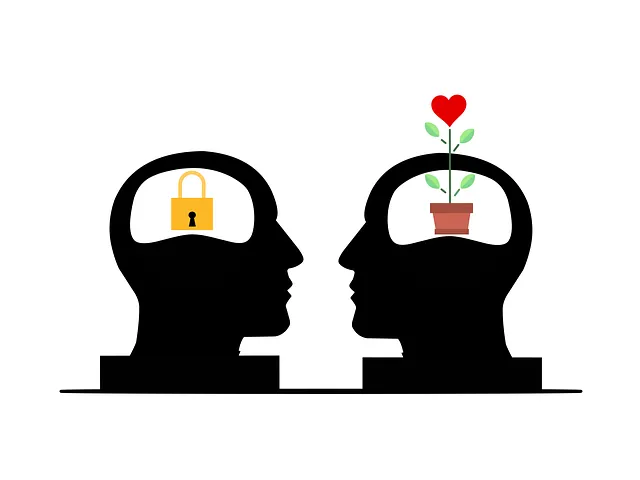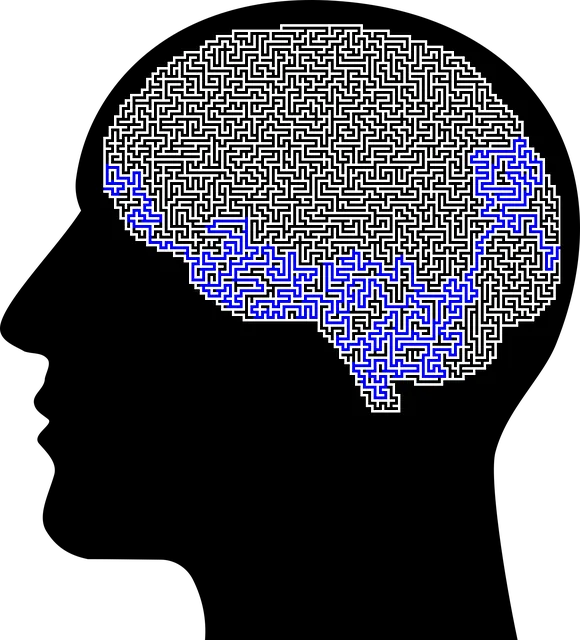Cultural competency is a critical skill for healthcare professionals aiming to provide equitable, inclusive care to diverse patients. Organizations like Kaiser Permanente Norcal in Littleton have taken steps to bridge cultural gaps through community outreach programs focused on mental wellness and empathy-building strategies, improving patient outcomes and creating an inclusive environment. Biases among providers can lead to disparities in mental health care, so self-awareness exercises and training programs are essential for identifying and mitigating biases. Kaiser Permanente's cultural competency program includes workshops, role-playing, and peer discussions, empowering professionals to deliver tailored care. Integrating this competence into medical education enhances emotional intelligence and reduces stress levels. Measuring success through multi-faceted evaluation methods ensures continuous refinement of these programs to maximize benefits for diverse patient populations, utilizing the Kaiser Permanente mental health phone number Norcal Littleton as a key resource.
Cultural competency is an essential skillset in healthcare, particularly with diverse patient populations. This article explores its significance and impact on patient care, mental health outcomes, and medical education. We examine a successful case study of Kaiser Permanente’s training programs in Norcal and Littleton, highlighting effective strategies for integrating cultural competence. Additionally, we discuss measuring the success of these initiatives, offering insights into enhancing healthcare services for all communities.
For more information on mental health resources, contact the Kaiser Permanente mental health phone number for personalized guidance.
- Understanding Cultural Competency in Healthcare: A Necessary Skillset
- The Impact of Cultural Biases on Patient Care and Mental Health Outcomes
- Kaiser Permanente's Approach to Training: A Case Study from Norcal to Littleton
- Effective Strategies for Integrating Cultural Competence into Medical Education
- Measuring Success: Evaluating the Effectiveness of Cultural Competency Programs
Understanding Cultural Competency in Healthcare: A Necessary Skillset

Cultural competency in healthcare is a crucial skill set that enables medical professionals to provide inclusive and equitable care to diverse patient populations. It involves understanding and appreciating cultural differences, values, beliefs, and practices, which are essential for building trust and effective communication between patients and providers. In today’s diverse society, where patients come from various ethnic backgrounds, languages, and socioeconomic statuses, healthcare providers must be equipped to navigate these complexities with sensitivity and respect.
At organizations like Kaiser Permanente Norcal in Littleton, recognizing the importance of cultural competency has led to the implementation of community outreach programs that focus on mental wellness and empathy building strategies. These initiatives aim to bridge cultural gaps, improve patient outcomes, and foster a more inclusive healthcare environment. By promoting cultural awareness and sensitivity, healthcare providers can ensure that every patient receives personalized care tailored to their unique needs and backgrounds.
The Impact of Cultural Biases on Patient Care and Mental Health Outcomes

Cultural biases among healthcare providers can significantly impact patient care and mental health outcomes. These biases, often unconsciously held, stem from individual experiences, societal influences, and environmental factors. When left unaddressed, they can lead to disparities in treatment, misdiagnoses, and a lack of cultural sensitivity in care plans. For instance, a study by Kaiser Permanente Norcal (Littleton) found that racial and ethnic minorities often face challenges in accessing mental health services, with barriers including stigma, language differences, and a lack of culturally competent therapists.
These biases can affect the way patients are heard, understood, and treated, impacting their overall well-being. For example, a healthcare provider’s bias might lead to dismissive attitudes towards a patient’s symptoms or cultural practices related to mental health. This can result in delayed treatment or inappropriate care, exacerbating existing mental health issues. Therefore, fostering self-awareness exercises among providers is crucial for identifying and mitigating these biases, ultimately enhancing Mental Health Awareness and reducing the stigma surrounding mental illness through ongoing Mental Illness Stigma Reduction Efforts.
Kaiser Permanente's Approach to Training: A Case Study from Norcal to Littleton

Kaiser Permanente, a renowned healthcare organization, has implemented a comprehensive cultural competency training program that serves as a compelling case study across various regions, from Norcal to Littleton. This initiative focuses on empowering mental health professionals with the skills to navigate diverse patient backgrounds and deliver tailored care. By prioritizing cultural sensitivity, Kaiser Permanente aims to improve patient outcomes and foster inclusive environments.
The program involves interactive workshops, role-playing scenarios, and peer discussions, enabling professionals to explore topics like racial bias, unconscious prejudice, and ethical considerations in mental health treatment. For instance, participants learn effective communication strategies for managing anxiety and mood disorders while considering cultural nuances. This training also incorporates risk management planning, equipping practitioners with tools to anticipate and mitigate potential challenges in providing mental health services to diverse populations. The success of Kaiser Permanente’s approach highlights the importance of such programs in addressing the unique needs of different communities, ensuring accessible and culturally responsive healthcare solutions for all, including those seeking mental health support through their dedicated phone lines like the Kaiser Permanente mental health phone number Norcal or Littleton.
Effective Strategies for Integrating Cultural Competence into Medical Education

Integrating cultural competence into medical education is a multifaceted approach that goes beyond mere awareness. Effective strategies involve incorporating diverse patient scenarios and case studies into training programs, encouraging role-playing exercises that mimic real-world interactions, and fostering open discussions on unconscious biases. At Kaiser Permanente Norcal in Littleton, for instance, their Community Outreach Program Implementation emphasizes the importance of understanding community dynamics and cultural nuances. This holistic approach equips medical professionals with the skills to provide culturally sensitive care.
Moreover, integrating mindfulness meditation techniques into training can enhance emotional intelligence and reduce stress levels, allowing healthcare providers to better navigate complex interpersonal situations. Additionally, risk assessments for mental health professionals should be implemented to ensure they’re equipped to handle cultural challenges that may arise in therapy sessions. Such proactive measures not only improve patient outcomes but also contribute to the overall well-being of mental health professionals.
Measuring Success: Evaluating the Effectiveness of Cultural Competency Programs

Measuring success in healthcare provider cultural competency training is paramount to ensure programs are effectively fostering empathy and improving patient outcomes. Organizations like Kaiser Permanente Norcal, which includes mental health phone services in Littleton, have implemented comprehensive programs aimed at enhancing cultural sensitivity among their providers. One key aspect of evaluation involves collecting feedback from both participants and the communities they serve, gauging changes in attitudes and behaviors related to diverse populations.
Beyond self-reported changes, assessing the impact of these programs can be done through examining clinical outcomes, such as improved access to services for underrepresented groups and increased satisfaction rates among patients from diverse backgrounds. Tracking the utilization of Trauma Support Services and monitoring progress in Emotional Healing Processes and Self-Esteem Improvement initiatives within these communities can also provide valuable metrics. By combining quantitative data with qualitative insights, healthcare organizations like Kaiser Permanente can continually refine their cultural competency training programs to maximize their benefits for all patients.
Cultural competency training in healthcare is no longer a choice, but an indispensable necessity. As evidenced by Kaiser Permanente’s successful programs in Norcal and Littleton, comprehensive education that addresses biases and promotes understanding can significantly improve patient care and mental health outcomes. By integrating cultural competence into medical education and rigorously evaluating program effectiveness, we can ensure that healthcare providers are equipped to deliver equitable and compassionate care to a diverse range of patients, reflecting the communities they serve. For those seeking support, remember that the Kaiser Permanente mental health phone number is available for those in need.






